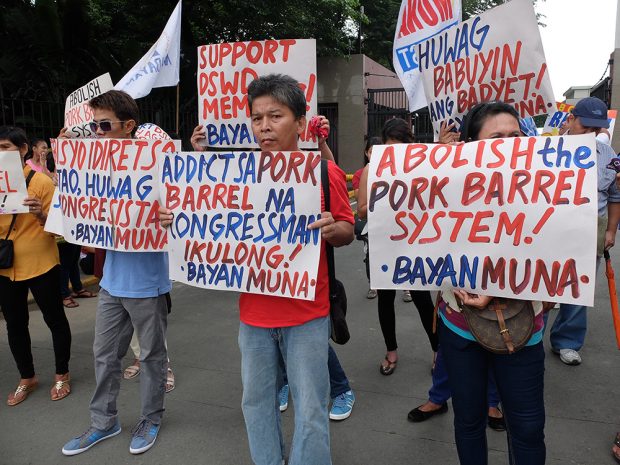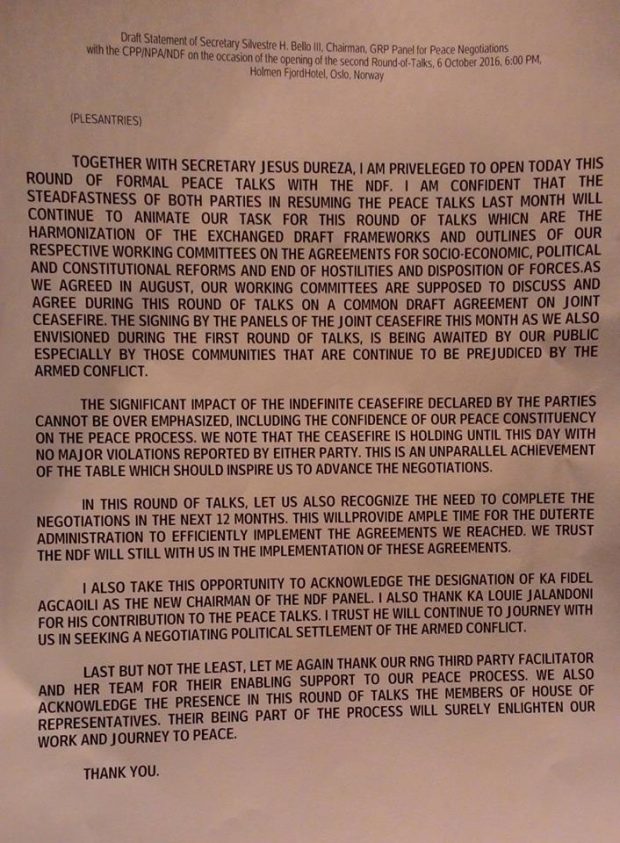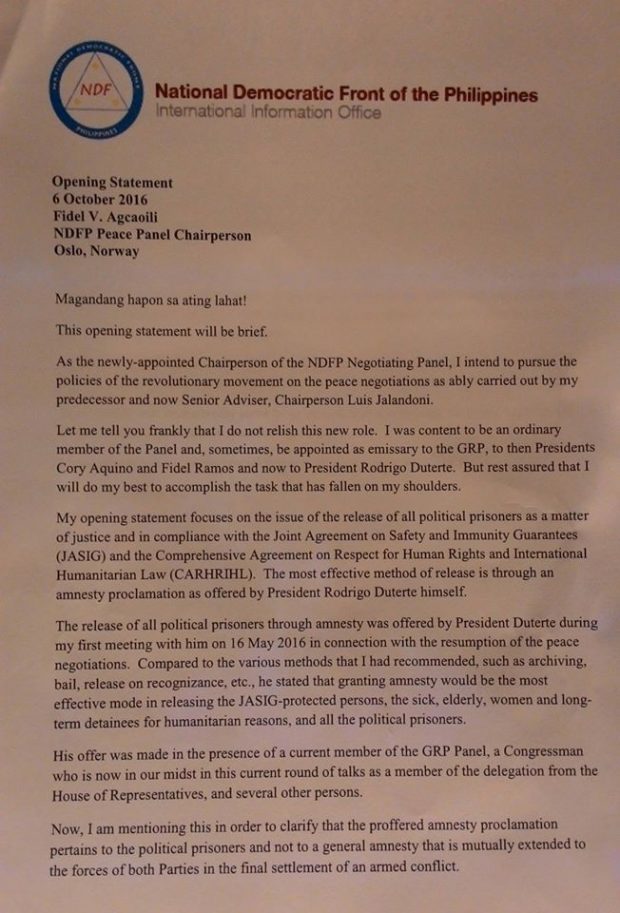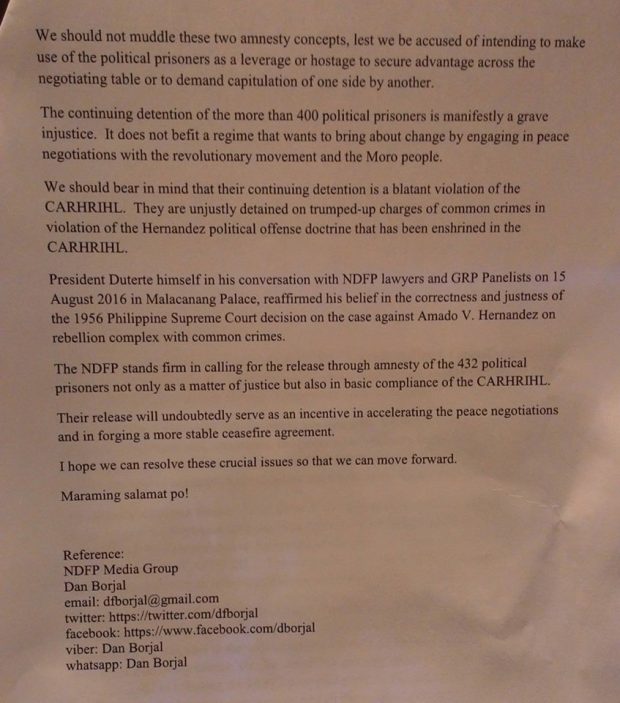A special report by Abril Layad B. Ayroso
“IT took eight months,” senior citizen Constancio Favor said of his attempts to get benefits from the Department of Social Welfare and Development (DSWD) through his district congressman.
“I was only asking for medicine. I had to return to the office of Quezon City Third District Rep. Jorge Banal many times to complete the requirements for a guarantee letter,” Favor said.
When he was finally given an endorsement, the DSWD under then Secretary Corazon Soliman made him undergo a completely different process from the one he went through with Banal’s office.
Favor was among the tens thousands of poor citizens who were told to secure endorsements from their representative before the DSWD under previous secretaries attended to their requests.
When new DSWD secretary Judy Taguiwalo learned of their complaints she immediately sought to stop the practice through her Memorandum Circular No. 9 issued last August 6. Among others, MC9 ordered the entire agency to act on requests from intended beneficiaries even without a letter from lawmakers. The circular also reminded DSWD employees that so-called guarantee letters from congressmen is not a requisite in the identification of beneficiaries.
Some lawmakers, thinking the circular was an attempt to disregard them, reacted strongly against it.
Well-attended budget hearing
Sixty lawmakers lined up to grill Taguiwalo at the two DSWD budget hearings of the Committee on Appropriations of the House of Representatives earlier this month. Many of them asked Taguiwalo about MC9, saying it prevents them from helping the poor in their respective districts through DSWD services.
At the first hearing last September 1, Ako Bicol Rep. Alfredo Garbin claimed that congressmen were the first people that their constituents seek help from and that MC9 implies that their guarantee letters were in violation of the Supreme Court ruling against pork barrel.
Negros Oriental Representative Arnulfo Teves challenged Taguiwalo whether it was the DSWD or the lawmakers who know the poor’s plight better.
House Majority Leader and Ilocos Norte Representative Rodolfo Farinas for his part threatened DSWD and its proposed budget.
“We are not asking money from you. You are asking money from Congress. No budget can be spent on your programs without the (Congress) granting it,” Fariñas said.
Other members of the committee suggested to have DSWD’s proposed 2017 budget drastically reduced from Php130 billion to Php500 million — good for only one month of its employees’ salaries.
Taguiwalo for her part repeatedly explained that MC9 does not prevent congressmen from issuing guarantee letters to poor constituents who seek services from the DSWD. She said MC9 only clarifies that a guarantee letter is not a prerequisite to access to DSWD services.
“We have regional offices that can coordinate with you with the referrals. But there are people who have similar needs but do not have access to your referrals. We want to serve them also,” Taguiwalo said.
At the second hearing last September 13, Taguiwalo again clarified that congressmen may still make referrals to DSWD. She said that she believes that these referrals should not be treated as instant passes to benefits. She further said that MC9 is in compliance with Commission on Audit guidelines that executive branch agencies, like the DSWD, are the only authorities in identifying beneficiaries of government projects.
“MC9 was not aimed at relegating to the sidelines the prerogatives of the members of this (Congress) body to give referral letters to their indigent constituents who seek to avail of DSWD programs. Nor was it intended to shut the doors of DSWD cooperation with legislators, government officials, or private individuals. It was, however, aimed at democratizing access to services,” she said.
Taguiwalo’s circular received popular support from the government’s social service front liners.
Reform measure
The Social Welfare Association of Employees in the Philippines (SWEAP), the DSWD rank and file employees union defended what it called Taguiwalo’s “efforts for reforms towards better public service.”
In a statement, the group said that the memo “aims at preserving the dignity of social work by ensuring that key processes in program implementation are done by the diligent workers of the Department.”
SWEAP national president Manuel Baclagon called on the congressmen to stop the politicking, as they saw no reason for the lawmakers to react negatively to the memorandum.
“In principle, this MC is a policy aimed towards ensuring an efficient, fair and transparent provision of services to the needy,” Baclagon said.
Baclagon also emphasized that not all poor people can get endorsement letters from their respective congressmen.
“Secretary Judy is focused on ensuring that the programs and services of DSWD are indeed equally provided and made available to the needy. She wants those who are in need to have equal access to programs and services with or without a referral letter from politicians or government officials,” he added in response to statements by several of the congressmen.
Taguiwalo’s MC9 also received support from outside her agency.

Pork Barrel. Activists say that the lawmakers’ insistence on dictating on how the DSWD delivers services is a continuation of the unlawful ‘pork barrel’ system. (Photo above and featured image by Raymund B. Villanueva)
“Pork barrel”
Veteran journalist and opinion maker Inday Espina-Varona in a Facebook post said there is a deeper reason for the lawmakers’ frustration at Taguiwalo and MC9 and why “the fat, fat pigs in Congress are getting ready to sink their claws into Judy Taguiwalo.”
Varona said that the many congressmen are against MC9 because it seeks to stop the continuation of patronage politics that make the beneficiaries feel like they owe politicians and feel obligated to keep supporting and voting them.
“Simply put, Congress ‘piggies’ want to dictate the flow of DSWD services so they can force people to kneel in thanks and be able to extract voters for services,” she said.
Varona added that because the congressmen are not accountable for the funds being distributed by the DSWD, the lawmakers are free to send the money wherever they please.
The congressmen’s threats against DSWD drove progressive groups to the streets.
Activists defend a government agency
Last September 13, progressive organizations trooped to the House of Representatives to support Sec. Taguiwalo against the congressmen opposing her.
Gabriela-Quezon City chairperson Nerissa Guerrero said she believes the DSWD under Taguiwalo is changing for the better.
“Under previous administrations, I seldom went to the DSWD to seek help. As someone from the lower income brackets, I was not informed enough about all the benefits I should be receiving,” Guerrero said.
“Now, with Ma’am Judy as secretary, the DSWD is trying to inform the people about its programs and reach out to the beneficiaries, especially those affected by calamities. We can rely on the department now, because we know that its chief has a heart that is pro-poor and pro-people,” Guerrero added.
Among those who participated in the rally in front of the House of Representatives before the second budget hearing was Favor. He said he supports Taguiwalo and DSWD’s MC9.
Later that night, the Committee on Appropriations approved at its level DSWD’s proposed 2017 budget. But it will have to go through at least two more stages—the approval of the House of Representatives in plenary and the bicameral sessions with the Senate—before it can serve the millions of Guerreros and Favors faster. #





















